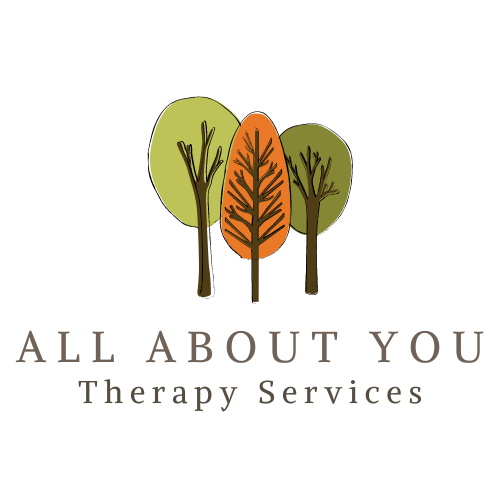Welcoming a new baby into the world is often portrayed as a time of joy and fulfillment, but for many new mothers, this period can also be marked by feelings of sadness, anxiety, and overwhelm.
Postpartum depression (PPD) is a serious mental health condition that affects approximately 1 in 7 women after giving birth. Recognizing the signs of postpartum depression is crucial for early intervention and effective treatment. At All About You Therapy Services, we believe in providing comprehensive support to new mothers as they navigate the complexities of postpartum life. We offer women’s counseling to help new moms deal with the difficulties that are solely unique to women. Here, we outline the key signs of postpartum depression to help you understand and identify this condition.
Emotional Symptoms
- Continuous Sadness: Experiencing feelings of sadness, tearfulness, or emptiness throughout most of the day, nearly every day, is a key indicator of postpartum depression. This differs from the milder and shorter-lived “baby blues,” which usually dissipate within two weeks.
- Intense Irritability or Anger: Mothers experiencing PPD may find themselves unusually irritable or angry. These feelings might be directed at their partner, other children, or even the baby.
- Overwhelming Anxiety: While it’s normal to worry about your newborn, excessive and persistent anxiety about your baby’s health or your ability to care for them can be a sign of postpartum depression.
- Loss of Interest or Pleasure: A significant decrease in interest or pleasure in activities that used to be enjoyable, including bonding with the baby, can indicate PPD.
Cognitive Symptoms
- Difficulty Concentrating: Postpartum depression can make it hard to focus or make decisions, even about simple tasks. This can be especially challenging when managing the demands of a new baby.
- Negative Thoughts: Persistent negative thoughts, such as feelings of worthlessness, guilt, or shame, are common in postpartum depression. Some mothers may also have thoughts about harming themselves or their baby, which require immediate medical attention.
Physical Symptoms
- Changes in Appetite: Significant changes in appetite, whether a marked increase or decrease, can be a sign of postpartum depression. These changes can lead to weight loss or gain.
- Sleep Disturbances: While new mothers often experience disrupted sleep due to their baby’s needs, those with PPD might struggle with insomnia or, conversely, sleep excessively and still feel exhausted.
- Fatigue: Extreme tiredness and a lack of energy that doesn’t improve with rest can be a symptom of postpartum depression. This fatigue can interfere with a mother’s ability to care for herself and her baby.
Behavioral Symptoms
- Withdrawing from Family and Friends: Engaging less with loved ones and feeling disinterested in social interactions is frequently observed in cases of postpartum depression.
- Difficulty Bonding with Baby: A mother with PPD might have trouble forming an emotional connection with her baby, which can intensify feelings of guilt and inadequacy.
- Avoidance of Activities: Avoiding activities or responsibilities, including those related to baby care, can be indicative of postpartum depression.
Risk Factors and Seeking Help
Certain factors can increase the risk of developing postpartum depression, including a history of depression or anxiety, stressful life events, lack of support, and complications during childbirth. Recognizing these risk factors can help in early identification and intervention.
If you or someone you know is exhibiting signs of depression after giving birth, it is key to seek help promptly. Here are the steps you can take:
- Talk to a Healthcare Provider: Speak with a doctor, midwife, or mental health professional about your symptoms. They can provide a proper diagnosis and discuss treatment options, which may include therapy, medication, or a combination of both.
- Reach Out to Support Networks: Lean on your support system, whether it’s family, friends, or a support group for new mothers. Sharing your experiences and receiving support can be incredibly beneficial.
- Practice Self-Care: Prioritize self-care by ensuring you get adequate rest, nutrition, and time for yourself. This can help improve your overall well-being and resilience.
- Therapeutic Interventions: Engaging in therapy, such as cognitive-behavioral therapy (CBT) or interpersonal therapy (IPT), can be highly effective in treating postpartum depression. These therapies can help you develop coping strategies and address underlying issues.
Conclusion
Postpartum depression is a challenging and often misunderstood condition that requires compassion, understanding, and proper care. By recognizing the signs and seeking appropriate help, new mothers can find the support they need to navigate this difficult period and enjoy the precious moments with their babies. At All About You Therapy Services, we are dedicated to supporting mothers through every stage of their postpartum journey. Remember, you are not alone, and help is available.



